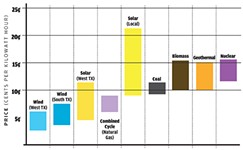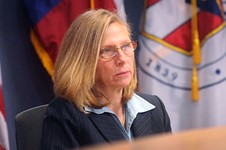Council: Boom Times, Boom Incentives
City considers deals with Websense and Dropbox
By Michael King, Fri., Feb. 21, 2014
The next regular City Council meeting is Feb. 27, but this afternoon (Feb. 20), Council will consider two more economic development incentive deals: one for San Diego-based cyber-security firm Websense, and one for San Francisco-based file-hosting firm Dropbox. As usual, the deals arrive with a goose from the Texas Enterprise Fund – state incentives already promised, but contingent on local municipal support.
The performance-based deals were briefed to the Council last Thursday by the Economic Development Department, with these basic terms:
Websense: The city would direct-grant $438,000 over 10 years, pending the company's relocation of its headquarters and creation of 470 full-time jobs with an annual average wage of $82,000. The net direct economic benefit to the city is estimated at $1.7 million (the state TEF contribution will be $4.5 million).
Dropbox: The city would direct-grant $244,500 over 10 years, pending the company's addition of 170 full-time jobs with average annual wage of $59,000. The net direct economic benefit to the city is pegged at $594,680 (the state TEF contribution will be $1.5 million).
As such deals go, Austin's 10-year contributions are relatively small – the bigger prizes are clearly the TEF incentives – but in the wake of the recent $679,500 AthenaHealth package that brought that health care software firm to Seaholm, Council approval won't be automatic. Council Members Laura Morrison and Kathie Tovo voted against the AthenaHealth incentives, arguing that Austin's booming economy is currently attracting such firms without similar deals, and also questioning whether the iconic Seaholm building will be sufficiently open to the public.
Public commenters and council members questioned whether the benefits of the incentives policy are filtering outward and downward to the wider populace – or simply feeding "uncontrolled growth." Defenders of the policy argued that the city's matrix officially measures only direct economic benefits (e.g., in tax increments and the like), and that in fact the indirect benefits of employee spending and broader job creation (especially with a headquarters move like that of Websense) are as important as the directly measured benefits. Expect those arguments to be revisited today.
Websense, known for its cyber-security software (e.g., warning Facebook users from malware sites), is considering a headquarters move to Stonelake Boulevard in the Arboretum area. Dropbox, the latest wrinkle in "cloud" storage, allowing users to access owned files from any computer, expects to expand its current Downtown presence from a 30-person workforce to 200 employees based at Fifth Street and Congress Avenue.
In the contentious software universe, both companies have also run into criticism. After Websense applications were reportedly used by Yemen, China, and other governments to control or censor Internet content, the company suspended sales to oppressive regimes, called for other firms to do the same, and was praised by the Electronic Frontier Foundation for "pointing to the technology sector in the direction of promoting freedom." Dropbox, meanwhile, was recently raked by the Washington Post's Vivek Wadhwa for hiring practices that indirectly discriminate against female applicants, with the result that only 6.3% of the company's engineers are women. That's likely why, according to the city's proposal summary, Dropbox "is focused on increasing the gender diversity of the tech workforce. It has an internal team dedicated to this issue and sponsors a conference focused on women in technology." See more details on the two proposals on the Economic Development Department website: www.austintexas.gov/department/economic-development.
Looking forward to next week's regular meeting, expect polemical sparks to fly over the proposed U.S. Department of Justice settlement with the city over the Austin Fire Department's hiring practices (see "Is the City Trying to Bust the Firefighters Union?" Feb. 7); a proposal by the Radisson Hotel to use neighboring lakeside parkland for a restaurant deck and terrace; and a hearing on the Festival Beach/Fiesta Gardens Master Plan.
More Bold-Faced Names
Electioneering eyes are currently focused on the March 4 primaries (early voting continues through Feb. 28), but action still stirs as well on the November 10-1 City Council election. Last week, small business owner and community activist Edward Reyes officially announced his District 2 run at Casa Moreno's on Burleson Road. Zoning and Platting Commissioner and North Austin Civic Association board member Gabriel Rojas is reportedly considering a run in District 4. Settling on District 4 is Marco Mancillas, executive director of the Hispanic Physicians Association, who had earlier taken a look at District 2 (and before that, the House District 50 race) – he's formed an "exploratory committee" in anticipation of a formal announcement in March. Ed English of the Milwood Neighborhood Association has confirmed that he is definitely running in District 7, and has officially designated a treasurer – for the moment, himself. Mandy Dealey has done the same in District 10, and Darrell Pierce has filed (treasurer: Aaron Demerson) in District 8.
See the full list of Council candidates on our election page (austinchronicle.com/elections), and if you think you should be on it – or know someone else who should – please drop me a line at mking@austinchronicle.com.
Got something to say on the subject? Send a letter to the editor.











